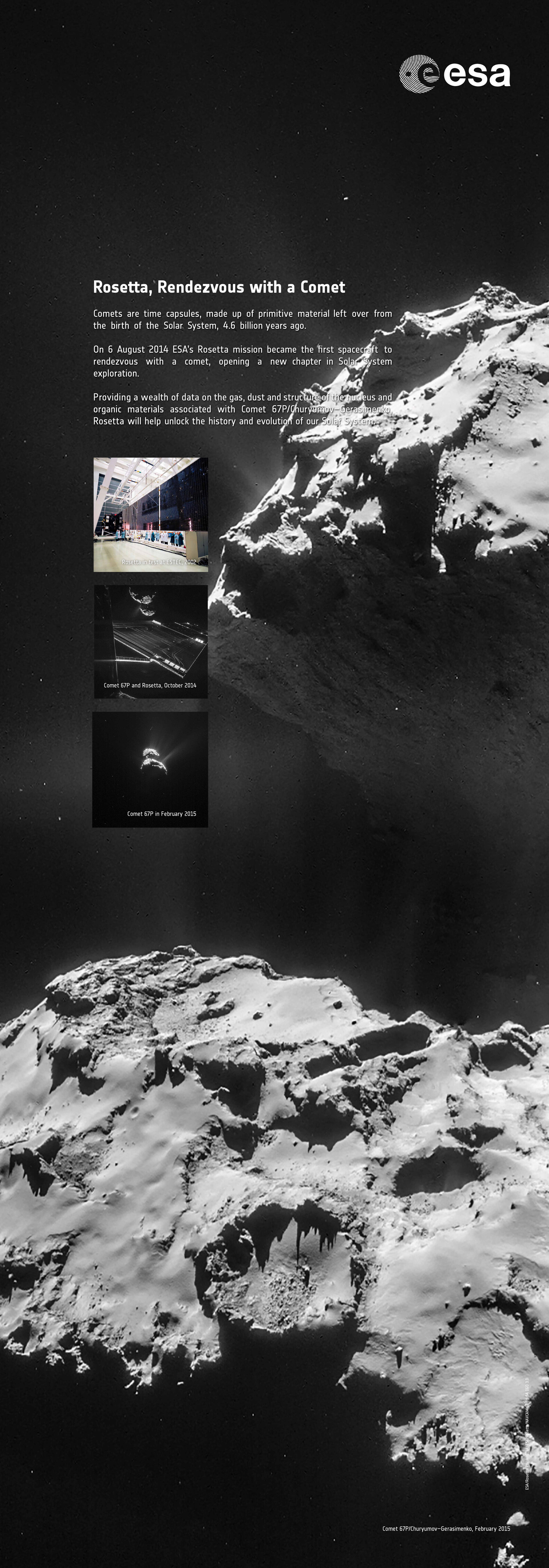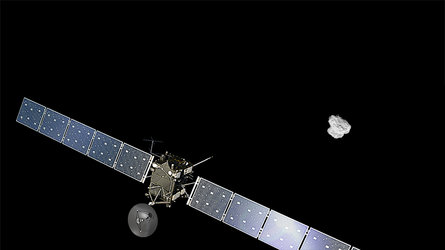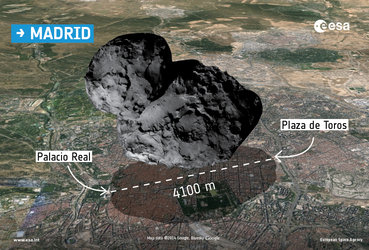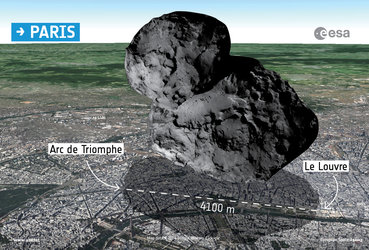

Agency
Rosetta, rendezvous with a comet
Comets are time capsules, made up of primitive material left over from the birth of the Solar System, 4.6 billion years ago.
On 6 August 2014 ESA’s Rosetta mission became the first spacecraft to rendezvous with a comet, opening a new chapter in Solar System exploration.
Providing a wealth of data on the gas, dust and structure of the nucleus and organic materials associated with Comet 67P/Churyumov–Gerasimenko, Rosetta will help unlock the history and evolution of our Solar System.
Comet 67P/Churyumov–Gerasimenko, 3 February 2015
© ESA/Rosetta/NavCam – CC BY-SA IGO 3.0
Rosetta in test at ESTEC, 2002
Comet 67P and Rosetta, October 2014
Credits: ESA/Rosetta/Philae/CIVA
Comet 67P on 18 February 2015
© ESA/Rosetta/NavCam – CC BY-SA IGO 3.0





